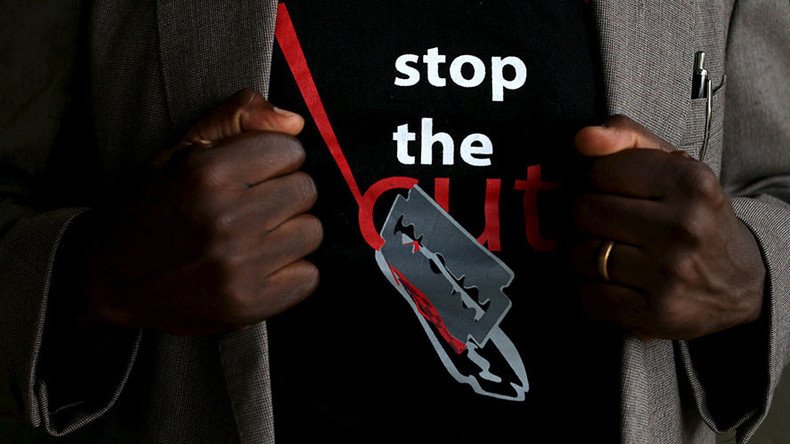400 cases of female genital mutilation recorded in the UK every month

More than 1,200 cases of female genital mutilation (FGM) have been recorded in England over the past three months despite the practice being outlawed in Britain for more than 30 years.
Between January and March there were 1,242 newly recorded cases of the practice, including 11 girls born in the United Kingdom, according to National Health Service (NHS) data released by the Health and Social Care Information Centre.
At least two percent of new cases involved girls under the age of 18. Seven women or girls included in the figures claim the illegal practice was carried out in the UK.
The practice, made illegal in the UK in 1985, involves either partial or total removal of the female external genitalia, typically with a blade or razor and sometimes without anesthesia.
It includes the cutting away of the clitoris and the fold of skin above it, and removing the labia. The most extreme form, called infibulation, involves sewing up the vulva to make a small hole for urine and menstrual blood to pass through.
Sometimes the vagina is then cut open for sex or childbirth, and sewn up again.
There has never been a successful prosecution against anyone found to practice FGM.
In response to the findings, the Royal College of Midwives adviser Janet Fyle urged health workers to be “vigilant” when it comes to identifying and tackling FGM.
“These figures show that we need renewed and focused efforts to tackle FGM. This has to be backed by a national action plan so that all sectors and all professionals see FGM as their business, and protecting girls from such abuses becomes a normal part of their practice,” she told the Independent.
Since April 2014, the NHS has been required to collect data on FGM from women attending hospitals, GP surgeries and mental health centers.
Last July, the government launched a program with the aim of ending the practice within a generation.
Home Secretary Theresa May said 137,000 women are living with the consequences of FGM in the UK, while a further 60,000 are at risk.
As well as being illegal in the UK, it is also illegal to take a female abroad for the purposes of FGM, with a maximum jail term of 14 years for carrying out or enabling FGM.














